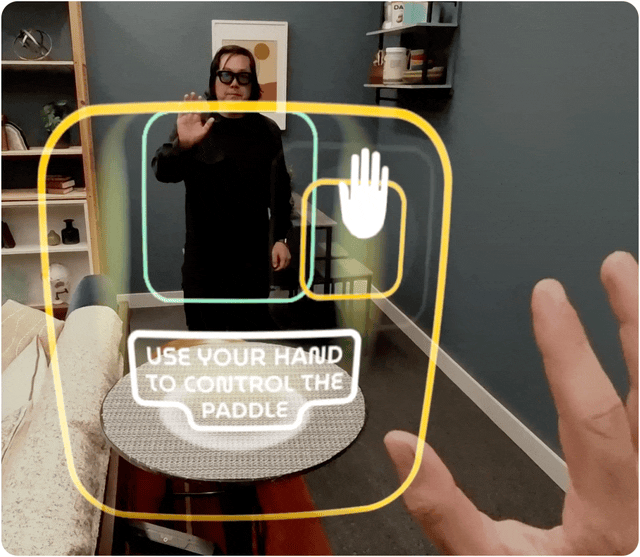Meta Connect 2024 marked a significant moment in Meta's ongoing efforts to revolutionize virtual and augmented reality (VR and AR), artificial intelligence (AI), and wearable technology. With multiple announcements that spanned hardware updates, AI advancements, and strategic shifts in the company’s focus, the event demonstrated how Meta continues to push the boundaries of immersive experiences. In this article, we will explore the key highlights of Meta Connect 2024, including the latest developments in the Meta Quest line, the much-anticipated Orion AR glasses, AI-powered innovations, and the broader implications for the tech industry and consumers.
Meta Quest 3S: Expanding Accessibility to Virtual Reality
:max_bytes(150000):strip_icc()/GettyImages-2173579256-5d72a0e515024da5b8f9377bed2b9306.jpg)
One of the major highlights of Meta Connect 2024 was the introduction of the Meta Quest 3S, a more affordable version of the widely popular Quest 3 headset. Priced at $299 for the base model with 128GB of storage, and $399 for the upgraded 256GB version, the Quest 3S aims to make VR experiences more accessible to a broader audience. By offering a cheaper alternative, Meta is positioning itself to attract newcomers to virtual reality, making immersive experiences available to those who may have found the previous models prohibitively expensive.
While the Quest 3S shares many features with its predecessor, it is designed to cater to casual users who primarily want access to the expansive Quest library, which includes gaming, educational, and entertainment applications. The focus on accessibility highlights Meta’s strategic goal of expanding the adoption of VR technology by lowering the entry cost, while still providing a high-quality experience.
The release of the Quest 3S also marked the end of life for the Quest 2 and Quest Pro, as Meta shifts its focus toward newer, more efficient devices. This move aligns with Meta’s broader strategy of streamlining its product offerings to focus on the latest innovations, thus creating a unified ecosystem of VR devices.
Orion AR Glasses: The Future of Augmented Reality

Perhaps the most futuristic announcement at Meta Connect 2024 was the unveiling of the Orion AR glasses. These full-holographic augmented reality glasses represent a significant leap forward in wearable technology, promising to integrate digital content seamlessly into the physical world. Although these glasses are still in development and not yet available for purchase, they are set to become a game-changer in the AR space.
The Orion glasses feature eye and hand-tracking technology, which allows for intuitive interaction with virtual content without the need for physical controllers. Additionally, the glasses include a neutral interface, designed to blend digital objects into the user’s environment in a natural and non-intrusive way. This level of integration promises to open up new possibilities for AR applications, from gaming and entertainment to productivity and communication tools.
Although no firm release date has been provided, the Orion AR glasses are poised to redefine how users interact with the digital world, combining Meta's expertise in hardware, software, and AI. As AR technology evolves, these glasses could potentially become a key part of daily life, much like smartphones are today.

Ray-Ban Smart Glasses: New Features and AI Integration
In addition to the Orion AR glasses, Meta also announced updates to its Ray-Ban smart glasses, which now come with several new features. These include real-time language translation and reminders, making the glasses even more practical for everyday use. One of the most exciting features is the AI-powered video processing, which allows users to capture and process video content in real-time. This feature is expected to revolutionize content creation, making it easier for users to create, edit, and share videos on the go.
The inclusion of AI technology in the Ray-Ban glasses underscores Meta’s commitment to integrating artificial intelligence into its wearable devices. By providing users with seamless access to powerful AI tools, Meta is not only enhancing the functionality of these glasses but also positioning itself as a leader in the wearable tech market.
Meta AI Updates: Llama 3.2 and AI-Powered Voices
Meta Connect 2024 also showcased significant updates to Meta AI, with the introduction of the Llama 3.2 AI model. This model boasts enhanced capabilities, including the ability to interpret graphs, charts, and even caption images when given descriptions. Llama 3.2 comes in two versions: an 11-billion parameter model and a more advanced 90-billion parameter model, offering a range of applications from basic AI tasks to more complex, data-driven analysis.
However, one of the most exciting features of the updated AI system is the introduction of AI-powered voice options, allowing users to choose from a variety of celebrity voices, including Kristen Bell, John Cena, Dame Judi Dench, Awkwafina, and Keegan-Michael Key. This feature provides a more personalized and engaging experience when interacting with AI systems, whether for communication, content creation, or virtual assistance.
While these AI innovations are largely available globally, the Llama 3.2 models will not be available in Europe due to restrictions under the EU’s AI Act. This limitation highlights the regulatory challenges Meta faces as it continues to develop cutting-edge AI technologies that must comply with varying international legal frameworks.
AI-Powered Language Translation and Content Creation Tools
Meta is also testing new features that leverage AI to translate content and sync audio dubs with the user’s lips. This could prove particularly useful for content creators and global users, enabling seamless multilingual experiences in videos, podcasts, and live broadcasts. Such advancements could significantly improve accessibility to content across languages, promoting cross-cultural communication and collaboration.
Games and Entertainment: Expanding the VR Universe
In the gaming sector, Meta Connect 2024 didn’t disappoint, with the announcement of several new titles for the Quest VR platform. Batman: Arkham Shadow, Alien: Rogue Incursion, and Arizona Sunshine 2 are just a few of the new games set to launch, expanding Meta's already impressive library of immersive VR experiences. These games are designed to take full advantage of the advanced capabilities of the Quest headsets, offering users deeper and more interactive gameplay.
Meta’s continued focus on high-quality VR games indicates the company’s belief that entertainment will remain a major driver of VR adoption. By offering a diverse range of content—from blockbuster action games to creative and educational applications—Meta is ensuring that there is something for everyone in its expanding ecosystem.
Broader Implications for the Future of Immersive Technology
Meta Connect 2024 provided a glimpse into the future of immersive technology, where VR, AR, and AI converge to create a seamless digital experience. By making VR more affordable through devices like the Quest 3S and developing cutting-edge AR solutions like the Orion glasses, Meta is positioning itself at the forefront of this technological revolution.
The integration of AI into wearable devices, such as the Ray-Ban glasses, and the expansion of AI-powered content creation tools also show Meta’s commitment to bringing artificial intelligence into everyday life. These innovations not only enhance user experiences but also signal Meta's long-term strategy of blending the digital and physical worlds in new and exciting ways.
As Meta continues to push the boundaries of what is possible with immersive technology, the announcements at Meta Connect 2024 indicate that the company is well on its way to realizing its vision of a connected, immersive future where digital content is seamlessly integrated into our daily lives.
Meta Connect 2024 was a showcase of groundbreaking innovations in virtual reality, augmented reality, and artificial intelligence. From the more affordable Meta Quest 3S to the futuristic Orion AR glasses, Meta is paving the way for a future where immersive experiences are more accessible, intuitive, and integrated into the fabric of everyday life. As AI continues to evolve and become more embedded in these technologies, the future looks incredibly promising for both Meta and the users who will benefit from these cutting-edge advancements.


















 English (United States) ·
English (United States) ·